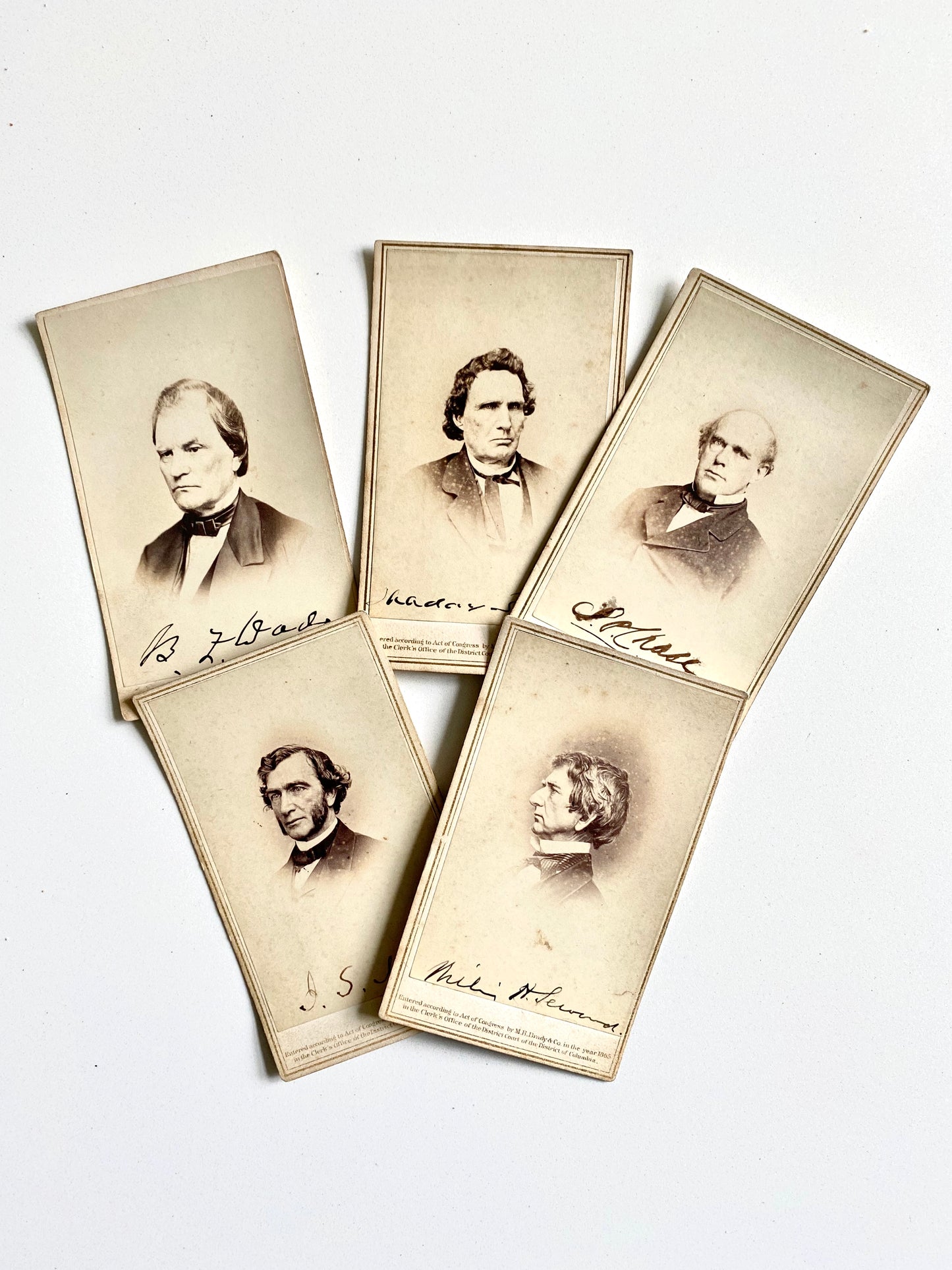Specs Fine Books
1865 CIVIL WAR & ABOLITION. Important Group of 5 Autographed Republican, Anti-Slavery, Civil War, Carte de Visites
1865 CIVIL WAR & ABOLITION. Important Group of 5 Autographed Republican, Anti-Slavery, Civil War, Carte de Visites
Couldn't load pickup availability
A wonderful grouping of five important autographed carte de visites from the Civil War period, including founders of the Republican Party, Abolitionists, Underground Railroad Interest, etc., Would be lovely framed together.
William H. Seward [1801-1872]. Carte de Visite by Matthew B. Brady, 1865. Very good with light handling; autographed. Important anti-slavery politician on the run up to the Civil War and Secretary of State under Abraham Lincoln.
Justin Smith Morrill [1810-1898]. Carte de Visite by Matthew B. Brady, 1865. Very good with light handling; autographed. Representative and Senator from Vermont during the Civil War, he was one of the founders of the Republican Party and architect of the Morrill Tarrif which essentially funded the Union Armies of the Civil War.
Salmon P. Chase [1808-1873]. Carte de Visite by Matthew B. Brady, Nd. Very good with light handling. The sixth Chief Justice of the Supreme Court and originally nominated to the court by Abraham Lincoln, Chase was one of the founders of the Republican Party and led the charge opposing the spread of slavery into the territories of the Westward Expansion. Previous to that, he practiced law in Ohio and was known as the Fugitive Slave Attorny, having been friends with Harriet Beecher Stowe, etc., and regularly defended slaves who had reached the end of the Underground Railroad from forced removal, etc.
Thaddeus Stevens [1792-1868]. Carte de Visite by Matthew B. Brady, 1865. Very good with light handling. Perhaps the most radical abolitionist of the bunch, he was one of the leaders of the Radical Republican Party, a splinter of the Republicans more intensely vested toward abolition. He is also perhaps the loudest voice in the ear of Abraham Lincoln, with whom he was close and influential, urging him to consider the abolition of slavery an equal outcome of the Civil War with the preservation of the Union. Previous to Stevens' influence, Lincoln had been more focused on preservation than the end of slavery.
Benjamin Franklin Wade [1800-1878]. Carte de Visite from Whitehurst Gallery, Nd. Very good with light handling. Wade, another of the Radical Republican Party, was a leading voice in abolition, civil rights, women's suffrage, etc., He was, like Stevens, much more radical than Lincoln and quite critical of Lincoln's conservatism on slavery. He authored a bill to determine the terms of re-admission to the United States for the Confederacy. It was much more demanding than what Lincoln proposed, passed the legislature, and was vetoed by Lincoln, who was afraid it would reignite the War.
Share


